Articles Archive
See all articles and discover more interesting topics!
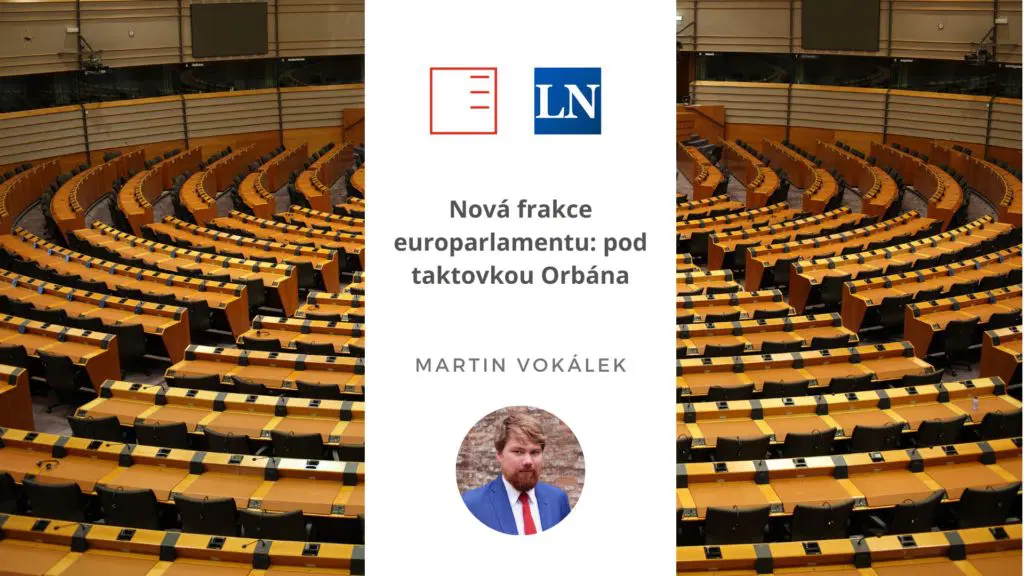
Lidovky.cz | New political group in the European Parliament: under the baton of Orbán
Visegrad sovereigntists. This is the name given by European circles to the upcoming new faction of the European Parliament, which is expected to include seven MEPs from the Czech ANO movement. The leader of the Czech opposition, Andrej Babiš, who led his MEPs out of the influential liberal Renew Europe, is working with Hungarian Prime Minister Viktor Orbán to establish the new group. Martin Vokálek, director of EUROPEUM Institute, comments on its formation.
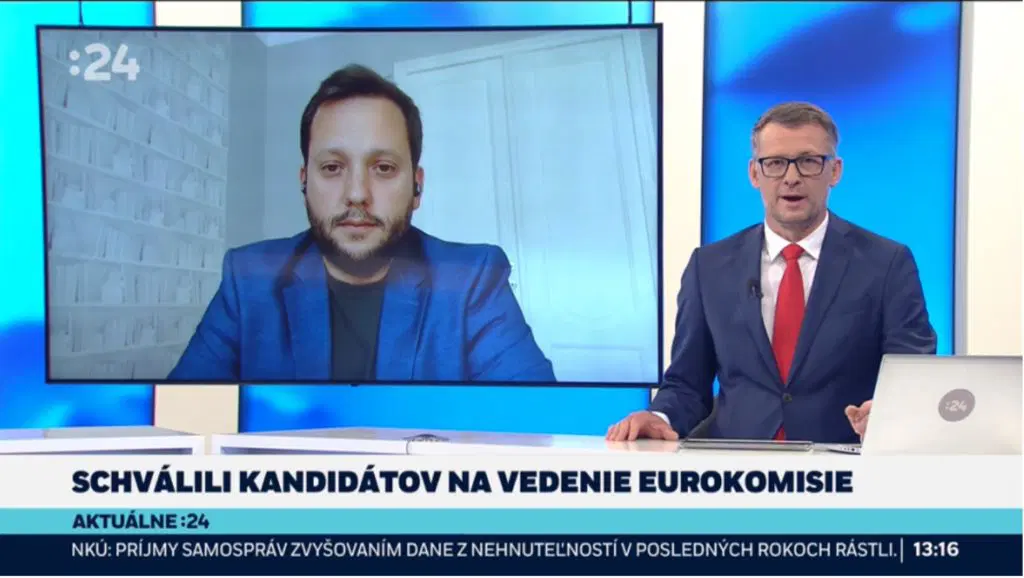
RTVS | EU and Ukraine have concluded a comprehensive security agreement in Brussels
The European Union and Ukraine concluded a comprehensive security agreement in Brussels. This builds upon the EU's longstanding support for Ukraine. What did the politicians agree upon? What is new in the new treaty? Žiga Faktor, Deputy Director and Head of the Brussels Office at the EUROPEUM Institute, commented for the Slovak RTVS.
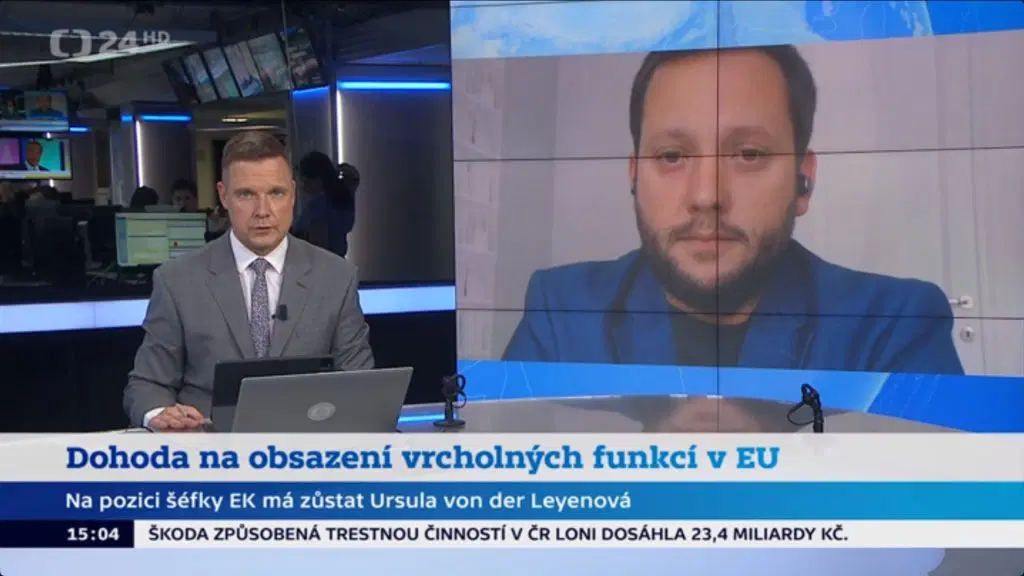
ČT24 | Agreement on staffing of the top EU positions
Ursula von der Leyen is to continue as head of the European Commission and Kaja Kallas, the Estonian prime minister, will lead diplomacy. Both politicians have yet to be confirmed by MEPs. The leadership of the European Council, on the other hand, is already assured by former Portuguese Prime Minister António Costa. Žiga Faktor, deputy director and head of EUROPEUM Institute's Brussels office, offers his perspective.
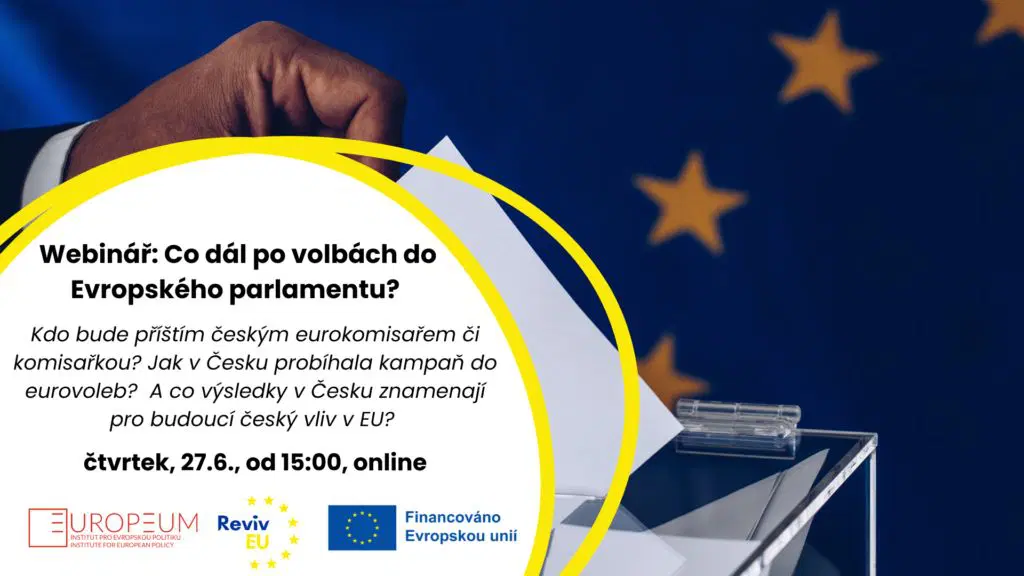
RevivEU | Where do we go from here after the European Parliament elections?
We invite you to participate in an online webinar! Europe and the Czech Republic know the results of the European Parliament elections. The vote, which was accompanied by high turnout in most countries, brought many surprises and in some places even other political change. Who will be the next Czech Commissioner? How did the campaign for the European elections go in the Czech Republic? And what do the results in the Czech Republic mean for future Czech influence in the EU?

Policy Brief | Were Czech industrial policy interests reflected in EU 2024-2029 strategic agenda discussions?
In light of the recent return of industrial policy to the global and EU stage, this policy brief outlines how Czech interests in this policy were reflected in the debates leading up to the adoption of 2024-2029 EU strategic agenda. First, it strives to define Czech industrial policy interests, outlining two alternative approaches to how they can be perceived. The liberal approach follows the long established consensus, according to which Czechia – as a very open, export oriented economy – should promote above all a seamless Single Market and free trade. Writes EUROPEUM Institute researcher Klára Votavová in her Policy Brief.
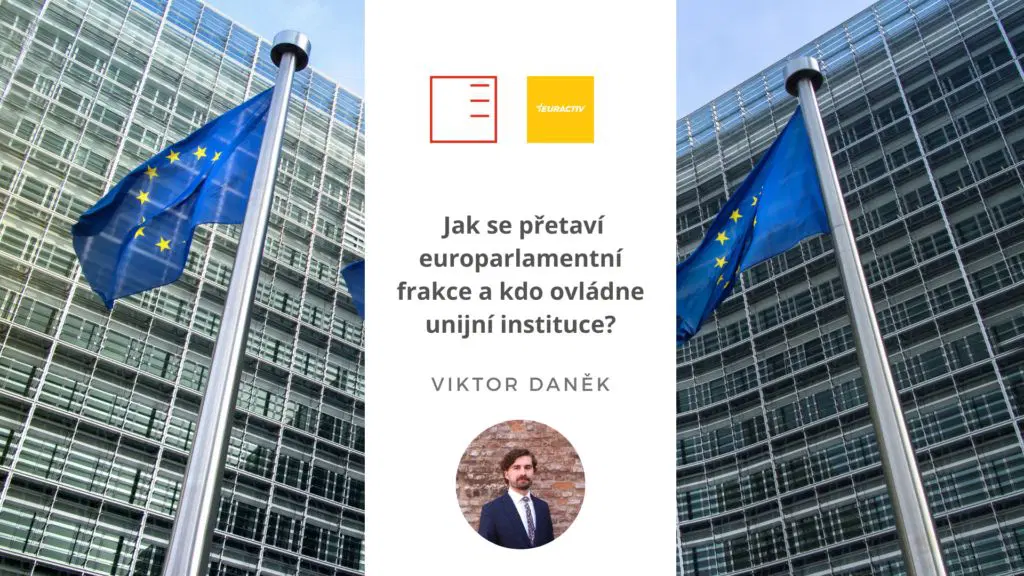
Euractiv.cz | Post-election reshuffles. How will the European Parliament factions transform and who will dominate the EU institutions?
The key issues for the new term in the EU do not end with the European elections. Forces in European Parliament continue to shift depending on factions, while leaders select institutional leadership. How will the elections and the composition of the European Parliament influence the future functioning of the EU? And who will lead it? Viktor Daněk, Deputy Director of EUROPEUM Institute, answered these questions for Euractiv.cz.
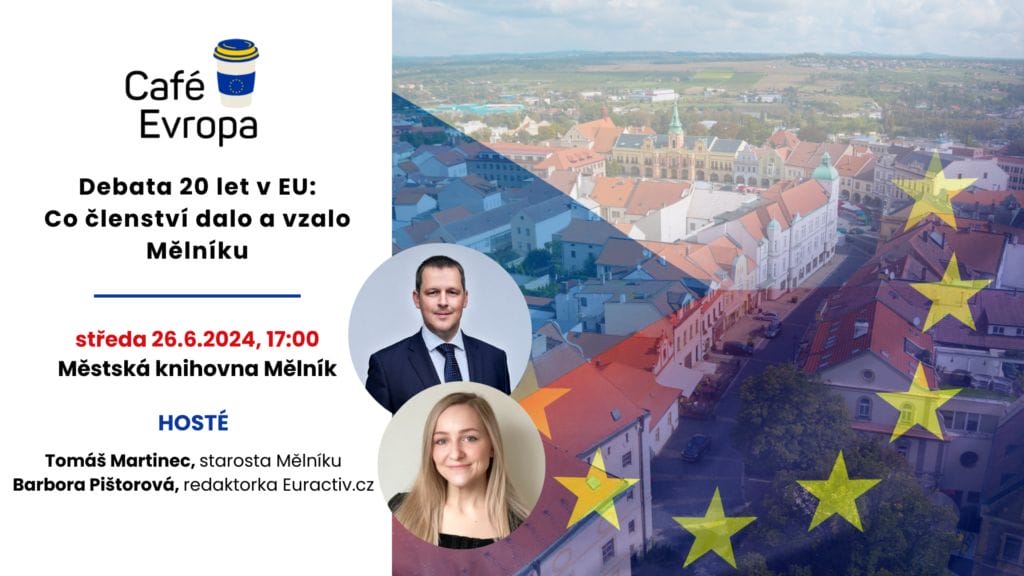
Café Evropa | 20 years in the EU: Benefits and drawbacks of the membership for Mělník
Come and join us for the latest in the Café Evropa series of regional debates! This time we will be in the city of Mělník. What do you think of the Czech Republic's 20 years in the EU? Are you worried about what the migration pact, the Green Deal will bring? Have EU subsidies helped the development of the city? What has the EU given and taken away from you? We want to hear from you!
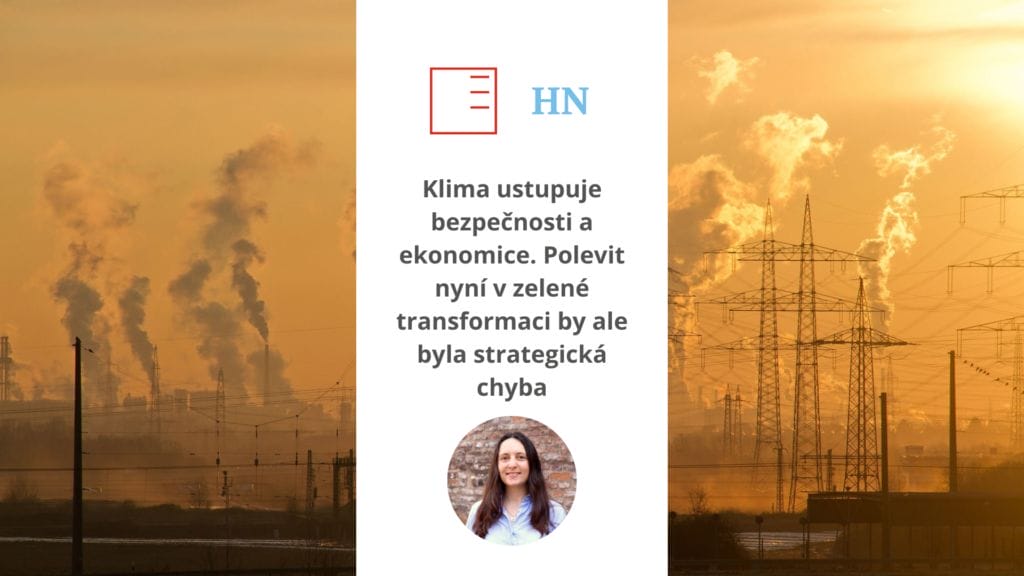
Hospodářské noviny | Climate is giving way to security and economy. However, easing off on green transformation now would be a strategic mistake
This year's elections to the European Parliament have sparked debates about continuing the European plan to reduce greenhouse gas emissions to net zero by 2050, despite recent events suggesting the need to reassess this plan. The election results did not signify as much of a setback for European green ambitions as anticipated. The priority of climate and environment is no longer as high among most Europeans as it was five years ago, reflecting current political and international challenges such as security, economic prosperity, and the competitiveness of European industry. Kateřina Davidova, a researcher at EUROPEUM Institute, wrote an opinion piece on this topic for Hospodářské noviny.
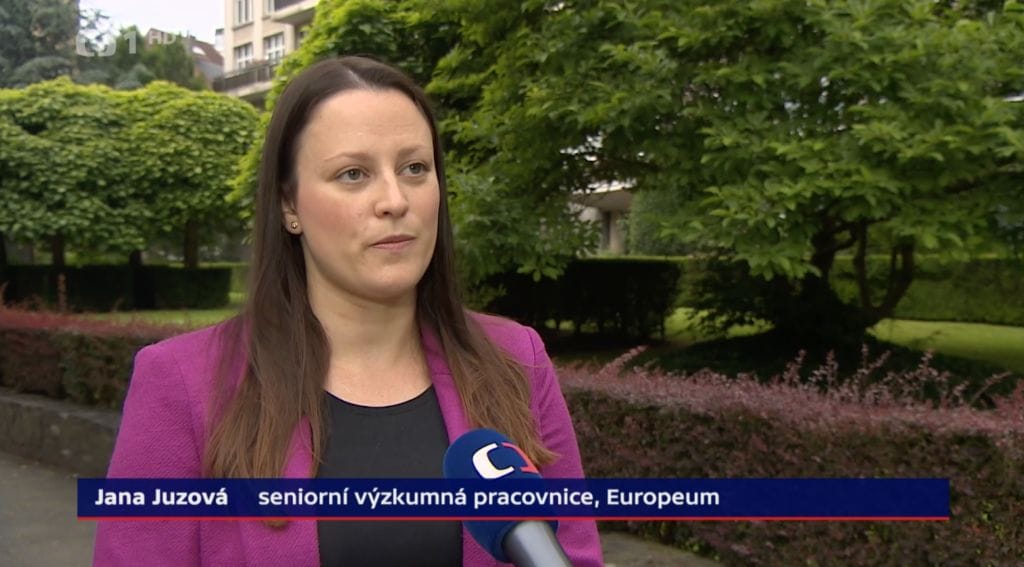
Události ČT | Accession talks between Ukraine and Moldova and the EU
The European Union has initiated accession talks with Ukraine and Moldova. This decision was preceded by two years of negotiations. The accession process is expected to take several years. Jana Juzová, a senior researcher at the EUROPEUM Institute, commented on the topic for Evening News on Czech Television.
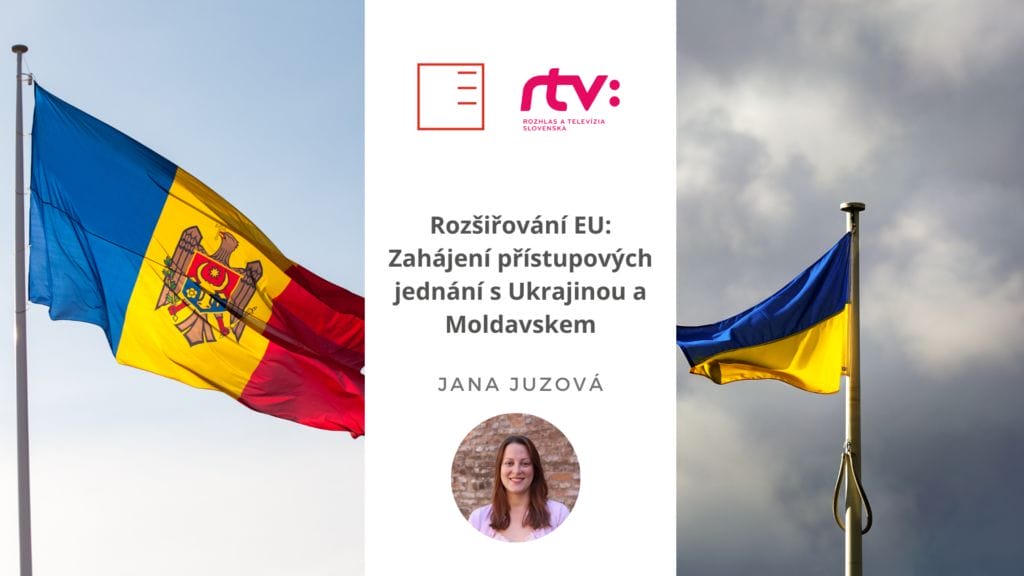
RTVS | EU Enlargement: Initiation of Accession Negotiations with Ukraine and Moldova
The European Union has initiated accession negotiations with Ukraine and Moldova. What does this mean for its inhabitants? How do the accession talks proceed? And what must the countries fulfill? Jana Juzová, a senior researcher at EUROPEUM Institute, comments for Slovak RTVS Television.
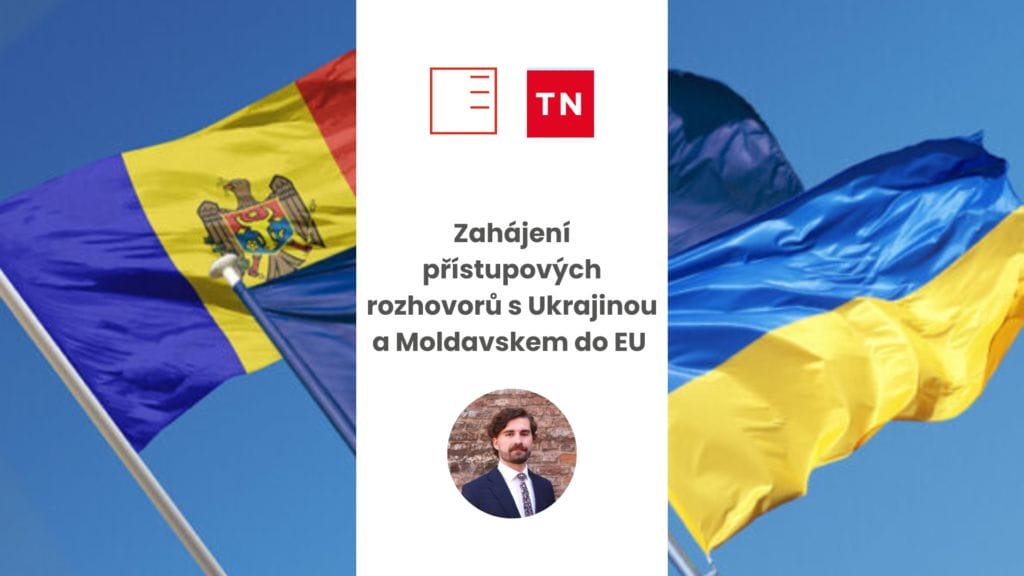
TN.cz | Ukraine and Moldova begin EU membership talks
In Luxembourg, formal accession negotiations with Ukraine and Moldova to the European Union have begun. Is this a significant progress towards their eventual EU membership? Which of these two countries has a stronger position? And how does the screening process unfold? Viktor Daněk, Deputy Director of EUROPEUM Institute, discussed these topics for TN.cz.
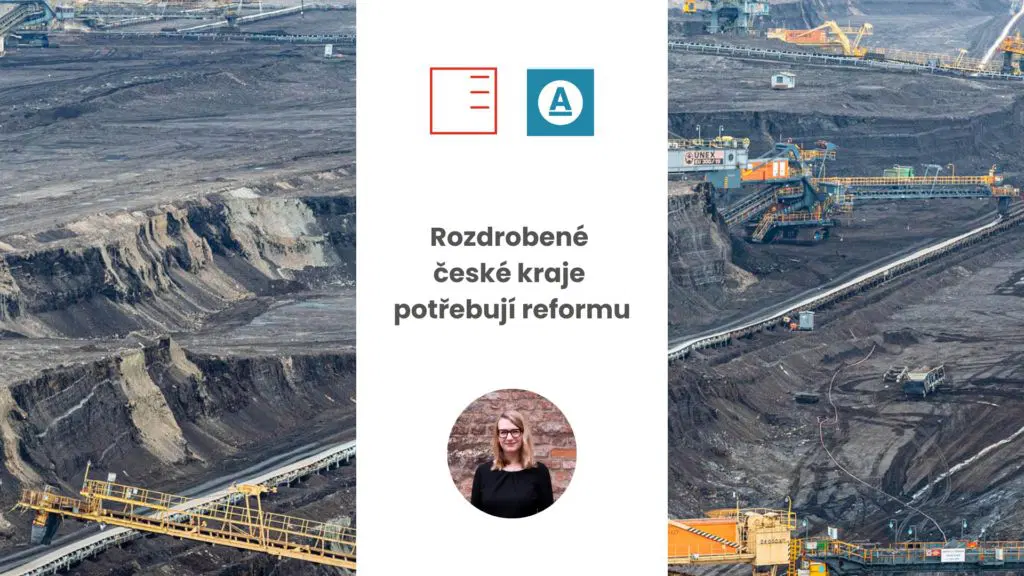
Aktuálně.cz | Fragmented Czech Regions Need Reform
In the autumn, regional council elections will be held. The existence of 14 regions in the Czech Republic, however, does not have a long tradition – they were only established in 2000, partly due to the anticipated entry into the European Union. This arrangement is now heavily criticized for their fragmentation, low and duplicative administrative capacities, and the associated negative impacts on the state budget. Klára Votavová, a researcher at EUROPEUM Institute, presents in her commentary on research on the capacities of the state and regions to draw from the Just Transition Fund, using the examples of the Karlovy Vary and Moravian-Silesian regions.